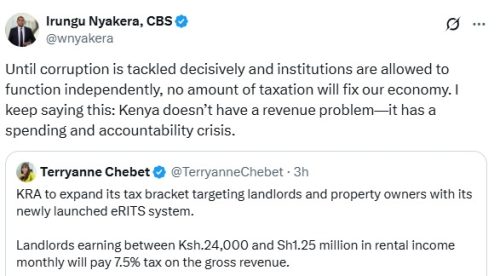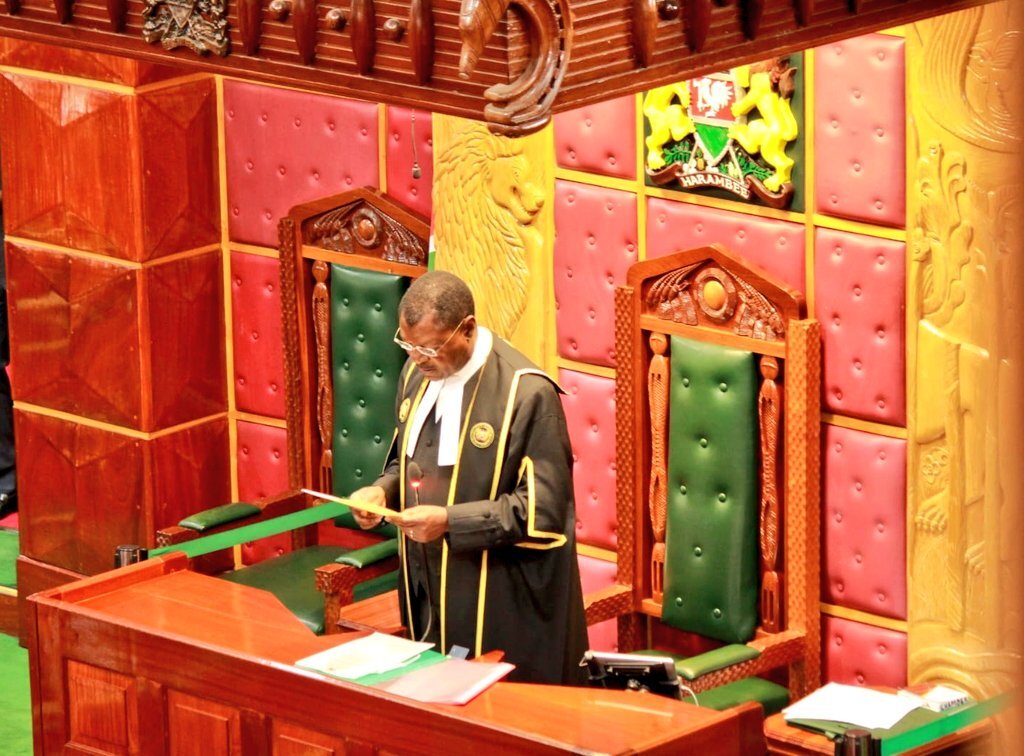Irungu Nyakera pours cold water on KRA’s new system targeting landlords and property owners

Former Kenyatta International Convention Centre (KICC) board chair Irungu Nyakera has criticised the new Kenya Revenue Authority (KRA) system targeting landlords and property owners.
The new system employed by the state body is aimed at expanding the tax base in the country, but Irungu has suggested what must be done first.
“Until corruption is tackled decisively and institutions are allowed to function independently, no amount of taxation will fix our economy. I keep saying this: Kenya doesn’t have a revenue problem—it has a spending and accountability crisis,” Nyakera said in a post on X on Friday, April 11, 2025.

Although Nyakera does not believe in the KRA initiative, Principal Secretary for National Treasury Chris Kiptoo explains the importance of the new system.
“This is not just about collecting more taxes. It’s about creating a system where compliance is intuitive, and every citizen feels part of the nation-building process,” Kiptoo said.
On his part, KRA Commissioner General Humphrey Wattanga defended the system as one that is designed to improve service excellence.
“Our vision is to turn tax compliance into a culture. eRITS reflects our dedication to service excellence, and it’s designed to integrate smoothly with existing platforms like eCitizen and other Gava Connect-enabled systems,” Wattanga said.
Rollout
The rollout of eRITS comes at a time when the government has reduced the Monthly Rental Income (MRI) tax rate from 10 per cent to 7.5 per cent, effective January 1, 2024. The MRI applies to landlords earning between Ksh288,000 and Ksh15 million annually—a significant portion of property owners in Kenya.
This policy shift has already started showing results. In the 2023/2024 financial year, KRA collected Ksh14.4 billion in MRI taxes—a 5.2 per cent increase from the previous year.










